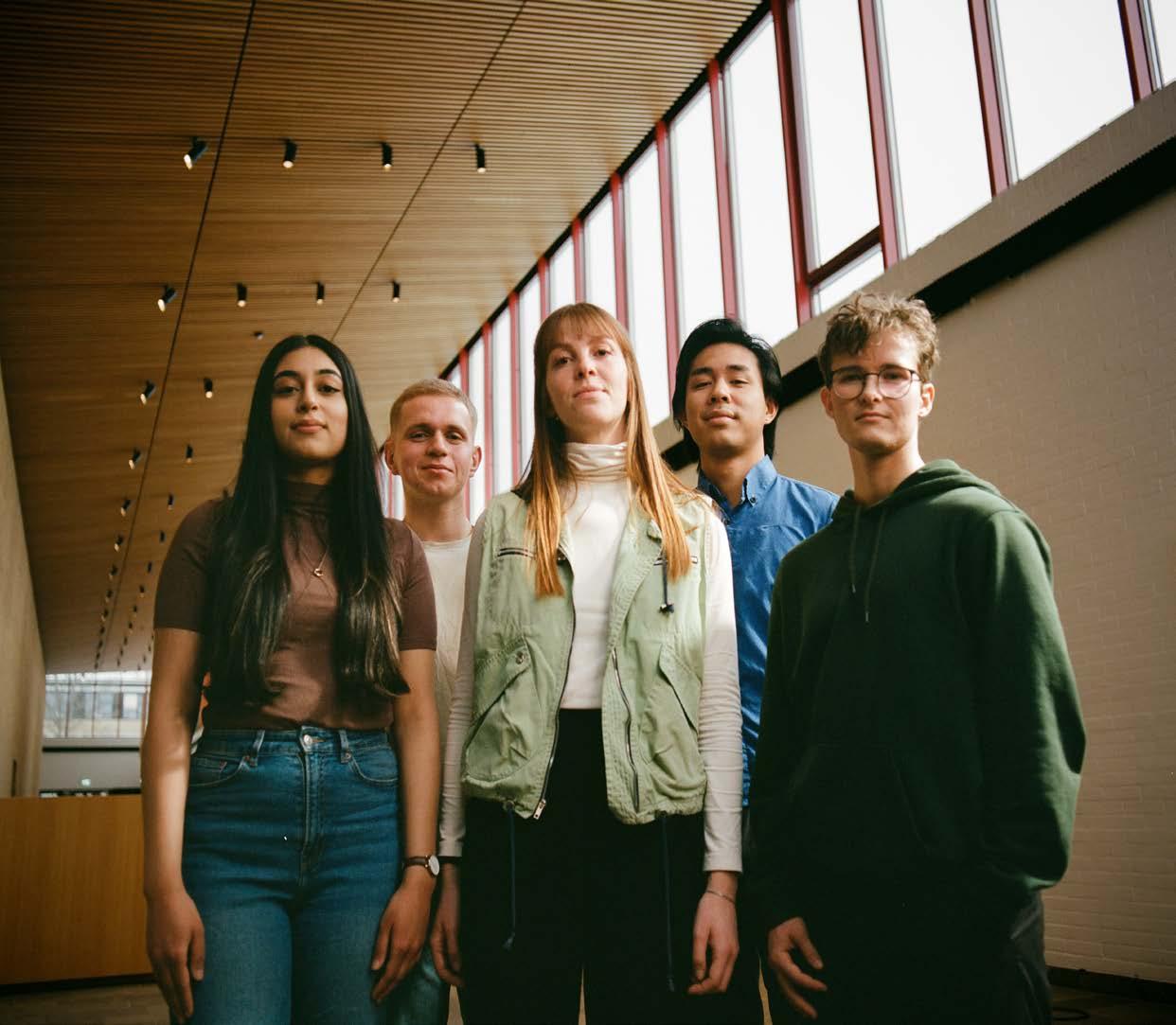2024/25


2024/25

Study programmes and student life at Technical University of Denmark

About DTU
Welcome from the President
Facts and figures
DTU – Technology for people
Studying at DTU
DTU across the country
Facilities and social life
Meet the students
Studying in Denmark
DTU Dictionary
Programmes in Denmark
BSc Eng programme
BSc Eng in General Engineering
Bsc Eng programme structure
Overview of joint international MSc programmes
Additional options for going abroad
All programmes
Programmes in Denmark
Joint international programmes
Admission and tuition
Career and Contact
DTU Career Centre
Pursue a PhD at DTU
Contact
MSc
Published: September 2024
Managing editor: Stig Roesen Editor: Andreas Ussingø
Design and Layout: EssenceMediacom Photos: Stamers Kontor, Mikal Schlosser, Steen Brogaard, Thomas Hjort Jensen, Mikkel Adsbøl, Ehrhorn & Hummerston, Julie Boénec, Thorkild Amdi Christensen, Carsten Broder Hansen, Simon Klein Hansen, Klaus Holsting, Bax Lindhardt, Colourbox, Søren Svendsen, Ditte Valente, Shutterstock, Mikkel Strange, Søren Kristensen, Unsplash, T Kaare Smith.


At DTU, we collaborate across academic disciplines and cultures to create a sustainable future. Our doors are open to our students and colleagues—and to society at large. This openness is reflected in our excellent research and study programmes, providing you with the possibility to pursue your passions and translate them into technology with global impact.
We aim to develop Europe’s best engineering education where you can realize your full potential and master technologies to benefit people and society. Technology is a driving force for a sustainable transformation of society, and we believe that technology can make a positive change when used with responsibility and care.
Led by our dedicated faculty, you will have hands-on access to world-class facilities. You will be encouraged to work in interdisciplinary programmes and get the chance to create an academic programme that will prepare you for a rewarding and exciting career.
Sustainability is a fundamental part of how we work with education and solutions. Our programmes focus on equipping a new generation of engineers with collaborative competences, innovative skills, and a digital mindset. This way your education will prepare you for facing the challenges of the modern world and finding the solutions to improve it.
Because at DTU, we strive for a sustainable future by developing technology for people.
Welcome to DTU.


Anders O. Bjarklev
President
The

Since 1829, DTU has educated new generations of engineers because we believe engineering holds the power to change the world. Across fields – from chemistry and computer science to biotechnology, acoustics, and environmental engineering – our programmes focus on using technology to help people. That is the key to our positive rankings and why we believe we are the leading technical university in Europe. At DTU, we build a better future based on sustainability, diversity, research, and industry-related education.
Towards a sustainable future The world needs answers on how to create a sustainable future. That is why we at DTU don’t just point out the problems but develop solutions to help solve them. Sustainability is a common thread throughout every programme, so if you choose to study at DTU, you are guaranteed to work with sustainability from an environmental, economic, and social perspective. After you graduate, you will have vast opportunities to pursue a career where you can positively impact people and the planet.
World-class research close to the industry At DTU, we are not afraid to celebrate research. After all, research runs in our veins and is involved in everything we do, including teaching, courses, and supervision. Our educators are all actively involved in research, which shines through in every one of our programmes. In addition, we mix engineering with innovation in our many different industry collaborations to ensure that your great ideas can become real-life solutions.
Room for everyone Diversity, equality, and inclusion. These three values are at the heart of DTU. They are an essential part of a joyful student life and a thriving research culture, and they are the reason why we cherish group work, collaboration and mutual respect. No matter your gender, ethnicity, age, sexual orientation, disability or other identity markers, you will always be welcomed at DTU.
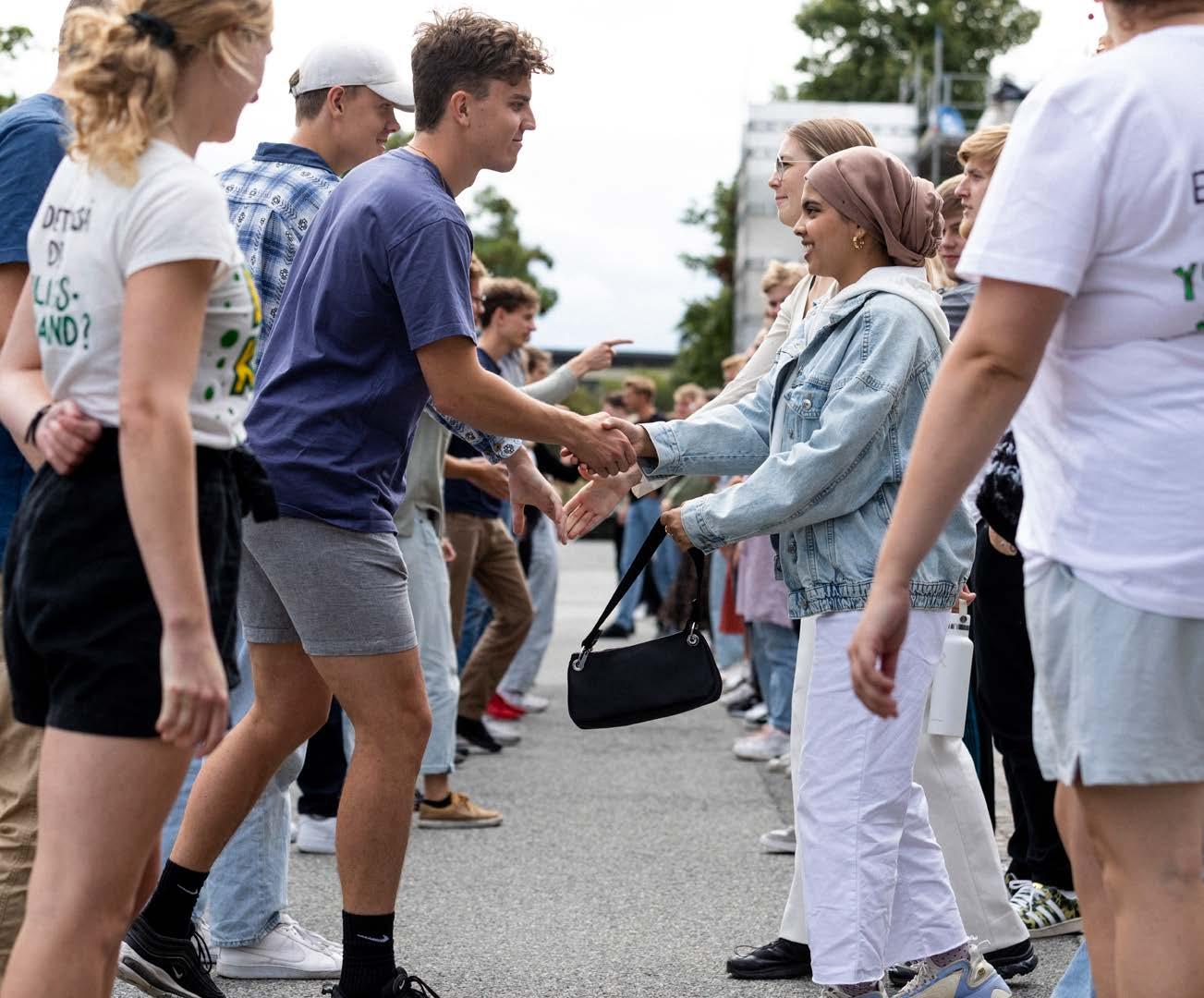
DTU is one university, but we exist all around Denmark. We have research and test facilities in all parts of the country, and our students attend five different campuses – including one in Sisimiut, Greenland. Most of our MSc programmes are at our main campus located in Lyngby just north of Copenhagen – one of Europe’s most popular and progressive capitals.
DTU Lyngby Campus
Our main campus
Location: 15 km north of Copenhagen
DTU Ballerup Campus
Home to many of our BEng students
Location: 10 km west of Copenhagen
DTU Risø Campus
Focuses on research in wind energy technologies
Location 40 km west of Copenhagen
DTU Hirtshals Campus
Focuses on research in fisheries and aquaculture
Location: Northern Jutland
Home to our arctic study programmes
Location: Sisimiut, Greenland
Kalundborg
Home to our Industry MSc in Biomanufacturing
Location: North-west Zealand
Facilities At every campus, you will find calm spaces for studying, rooms allocated for group work, libraries, and state-of-the-art teaching and research facilities, ranging from laboratories, workshops, and test halls to wind tunnels, anechoic chambers, and a marine research vessel. In addition, there are canteen options for when you need a bite to eat or a well-deserved break, and most of our campuses also offer sports facilities and student accommodation.
Social life
A joyful student life includes hard work and a lot of fun. At DTU, we make room for it all. Our programmes focus on group work and projects, and after your courses, there is a wide range of opportunities for your free time. It doesn’t matter if you prefer dancing, sailing, singing, or rugby; we will most likely have an association to match your passion. If you like student politics, you can join the student union PF (Polyteknisk Forening), and if you are looking for a drink to start the weekend, visit one of our Friday bars.
No matter where you come from, we are happy to welcome you to DTU. As a new student, there is much to learn, but don’t worry. We have many initiatives to ensure you find your way at DTU – and in Denmark. For example, your first week is Introduction Week, where we help you off to a great start. Here, you are assigned a buddy – a DTU student who will assist you through the first semester and answer any questions you might have.
After admission, you have the opportunity to connect with fellow incoming international DTU students through the online student-to-student connect programme via Goin’. In addition to making new friends prior to study start, you can ask questions to current DTU students about studies, social life and living in Denmark.

13,485
total students enrolled
107 countries students from total students enrolled on DTU’s MSc programmes
DTU has a vibrant student and campus life with more than 13,000 students from all over the world.
Meet four former students and hear their thoughts on studying at DTU. Anant, Christoffer, Laura, and Mareen are different nationalities and followed different study programmes.

women enrolled on DTU’s MSc programmes
See films about our study programmes
On DTU’s YouTube channel, you can watch a film about each of the MSc programmes.
Mareen from Germany Wind Energy
“The way of studying in Denmark is quite different from my bachelor experience. You’re in close contact with your professors, and they really care about helping you out.”

Anant from India Sustainable Energy
“I find the level of freedom and informal interactions with our professors kind of refreshing.”
5,725 PhD fellows
See all films

Social media
1,760
Get an insight into DTU’s study environment — follow us on social
Christoffer from Denmark Design and Innovation
“I live at the William Demant Dormitory. It’s a great place to live. It’s nice to have all your friends nearby. You’re never really alone unless you want to. It’s right next to DTU.”

Laura from Spain
Aquatic Science and Technology
“One of the things that is special about the way you study here is group work. Most of the final assignments are handed in as a group.”


Denmark is a place for different people and different ideas. We are the home of Lego, “Hygge”, and millions of bicycles – and we’re one of the safest countries in the world. 86 per cent of the population speak English, and our universities are based on a flat hierarchy. As a DTU student, you will find a casual and friendly tone between students and staff; professors go by their first names and group- and projectbased work is a part of your everyday life.
You will find the same thing if you choose to build your career here. Working in Denmark means teamwork, a flat management structure, and being a part of an informal group of colleagues where everyone pitches in with their ideas. The typical work week is 37 hours, and our labour market is based on the values of flexibility and security.
[ bloo dot PROJ-ekt ]
One example of DTU’s commitment to making the world a better place is the Blue Dot Projects – projects for students who want to dive into specific sustainable solutions alongside their ordinary courses. As a part of the projects, you will work cross-disciplinary with other students on a relevant project, ranging from energy, medicine and food to the DTU eco-car, brewery and robot competition.
[ DTU CHAR-tuh ]
At DTU, we believe actions speak louder than words. That’s why we have created a charter to ensure that sustainability is – and will continue to be – a crucial cornerstone of all our courses and programmes. The charter is our pledge to current and future students. It ensures that you obtain a deep understanding of sustainability and the development of sustainable solutions during your time at DTU.
[ green CHAL-uhnj ]
Every year, a significant student conference pops up at DTU. The Green Challenge is your chance to present your sustainable project to the world and win exciting prizes. Whoever wins is decided by a panel of experts, and a broad audience visits the conference to learn more about sustainability, climate technology, and environmental solutions.
[ oh-puhn-DOR POL-uh-see ]
One of the things we treasure as a university is our opendoor policy. The policy makes it easy for you to reach your professors and lecturers with questions, as their doors are always open. This is a fine example of the relationship between staff and students at DTU because here, everyone talks in an informal tone and is happy to help.


[ Pee eef ]
PF – short for Polyteknisk Forening – is the student union at DTU. As a student, you will find that PF can make a big difference in your life in terms of your studies and your free time. The union is deeply involved in student politics at DTU, but it is also home to many social activities, from ceramic classes to Friday bars.
[ ROSS-kil-dhuh FESS-tuh-vuhll ]
Come summer, a field only 40 minutes from Copenhagen will become the largest music festival in the Nordics. With 130.000 attending, Roskilde Festival is ideal for testing technical solutions in overpopulated areas. By participating with a project, you don’t only gain access and ETCS points; you also get the chance to present it to festivalgoers and potentially create solutions so groundbreaking they become a regular part of the festival.
[ SKIGH-lab ]
Located at our main campus in Lyngby, Skylab is DTU’s innovation hub. Here, many new ideas see the light of day, and if you are thinking about starting a start-up – or if you have an idea that you think could become a real-life solution – this is a great place to start.
[ dhuh for KWOD-ruhnts ]
If you choose to study a programme at our main campus in Lyngby, you might run into the term ‘the four quadrants’. This expression addresses the campus layout, which is built around four quadrants – one for each of the four traditional engineering fields: Chemical engineering, mechanical engineering, architectural engineering, and electrical engineering.

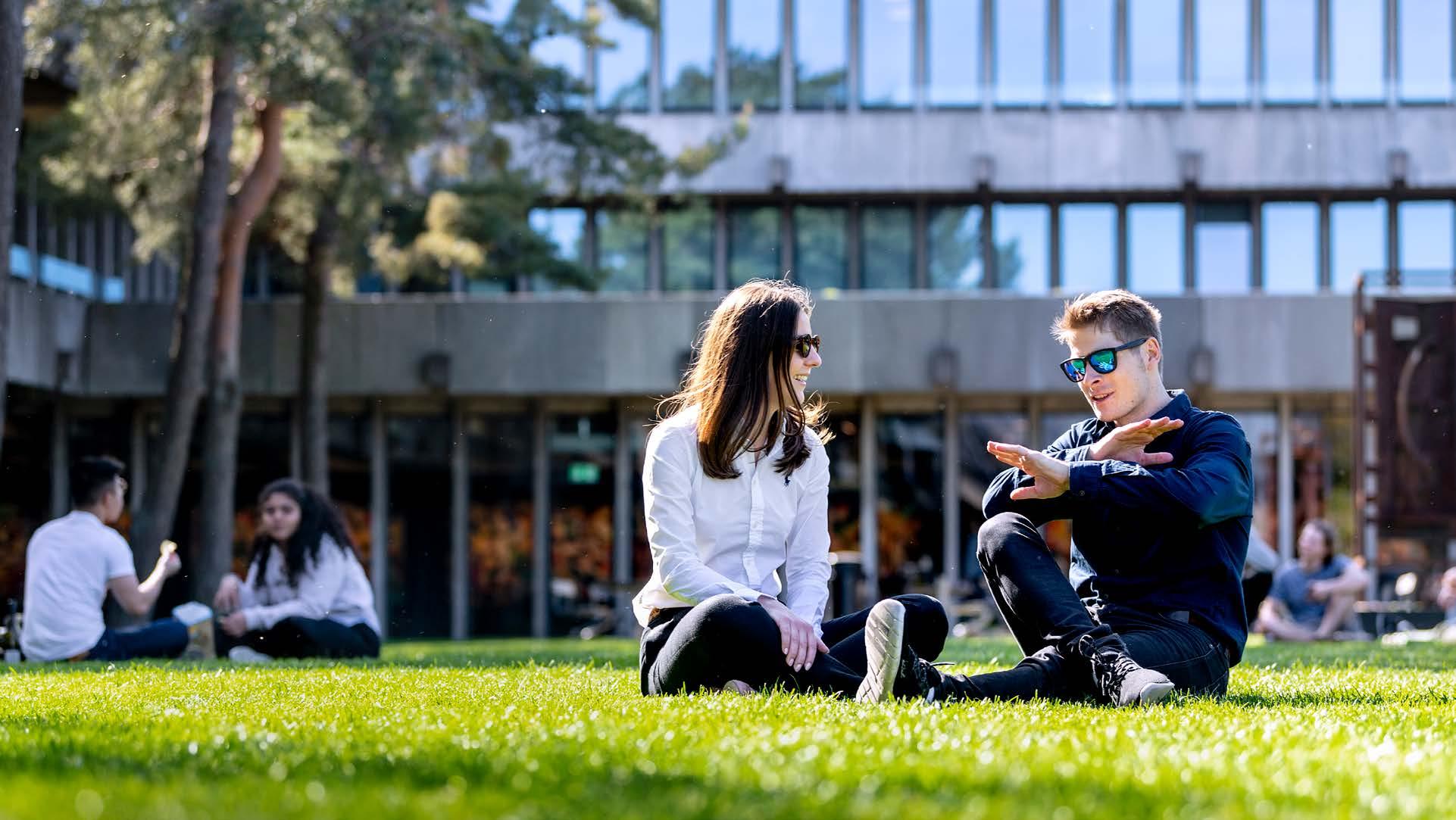
DTU offers an international BSc programme in General Engineering that is taught exclusively in English. As a student in the programme, you will learn to break down issues and find specific and practical engineering solutions to challenges ranging from wind power, AI, medicine, infrastructure, and many other areas influencing our daily lives. Engineers with an international outlook Through the programme, you will collaborate with your fellow students as you work on several design-build projects, which are projects focused on finding diverse solutions to real-life challenges. Here, you learn to collaborate, communicate, and apply the learned technical skills. The General Engineering programme is international, and approximately 40% of the students are Danish, while 60% are international. If you love collaborating, want to gain a global perspective, and find solutions that make a difference, this could be your programme.
To find the solutions that drive change, we need to collaborate and combine different skills from across the engineering field. As a General Engineering student.
Through the three years it takes to complete the bachelor’s degree, you will gain a thorough understanding of mathematics, physics, chemistry, and biotechnology. The four subjects give you a strong foundation. You gain a deep theoretical understanding, and during the many design-build projects, you will turn that understanding into specific solutions. The projects are practice-oriented and designed to develop your competences with working in an interdisciplinary environment and collaborating. We recommend choosing one of the four specializations during your bachelor’s degree in general engineering. The four specializations are:
- Living Systems
- Advanced Materials
- Cyber Systems
- Future Energy
The academic level of the BSc Eng programme is advanced. In each individual case, admission will be based on the following criteria:
General admission criteria
Degree In addition to having an upper secondary education leaving exam, you must have specific levels in English, mathematics, physics, and chemistry equivalent to the Danish exams:
- English B
- Mathematics A
- Physics B or Geoscience A
- Chemistry B or Biotechnology A
If your upper secondary education is not an IB, EB or from one of the Nordic countries, you have to prove your English proficiency by taking one of the following English tests:
English language proficiency Minimum entry levels: Cambridge Advanced English/Cambridge Proficiency in English 180 TOEFL iBT/TOEFL iBT Special Home Edition/TOEFL iBT Paper Edition 88 IELTS 6.5 Please note that IELTS and TOEFL tests must not be older than two years on 5 July.
Application fee Please note that unless you have a residence permit in Denmark, all non-EU/EEA citizens are required to pay EUR 100 to have their application processed.
Tuition fees Higher education in Denmark is free for EU/EEA citizens and for students participating in an exchange programme. All other students have to pay tuition.

Application
15 March at 12 noon if you hold an international qualifying exam.
The Bachelor of Science Engineering (BSc Eng) programme is a research-based undergraduate engineering programme that qualifies the student for an MSc programme. The BSc Eng programme is composed of four basic blocks of courses. During the programme, students must pass courses within each of these four blocks, corresponding to 180 ECTS credits.
All BSc Eng programmes include a number of courses that are specific to the particular programme. Programme specific courses help ensure that you acquire an accurate picture of what, for example, Life Science Engineering or Civil Engineering is about, and how it can be used in society. If, for example, you choose Life Science Engineering, this will comprise courses such as ‘biochemistry’, ‘molecular biology’, and ‘bioinformatic methods’. If, for example, you choose Civil Engineering, your programme specific courses will include ‘construction technology’, ‘thermal building physics’, and ‘concrete construction’.
During your BSc Eng programme, you will prepare two major projects. The projects help highlight and summarize everything you have learned and are also an opportunity to immerse yourself in a topic you find exciting. The first project—the subject project —falls halfway through your study programme. In addition to dealing with a subject-related topic, the project itself is an exercise in how to prepare a project and engage in teamwork. Your study programme is concluded with a BSc project, where you will have the opportunity to work in depth with a problem of relevance to the subject area of your study programme and to use a lot of what you have learned during your study programme to create results and new knowledge.
55 ECTS
The polytechnical foundation
Complex technological problems cannot be solved without knowledge about the basic natural science subjects: mathematics, physics, biology, and chemistry. In this course block, which is mandatory in all study programmes, you will be given a detailed introduction to these subjects —and always in a relevant technological context.
45
You have ample opportunity to create your own unique academic profile as a BSc Eng student at DTU. In your block of elective courses, you can choose from several hundred different courses from DTU’s course catalogue, or you can do courses at another university—in Denmark or abroad. You can steer your BSc Eng programme in exactly the direction you want, and thus tailor your choices to the MSc programme you might want to do.
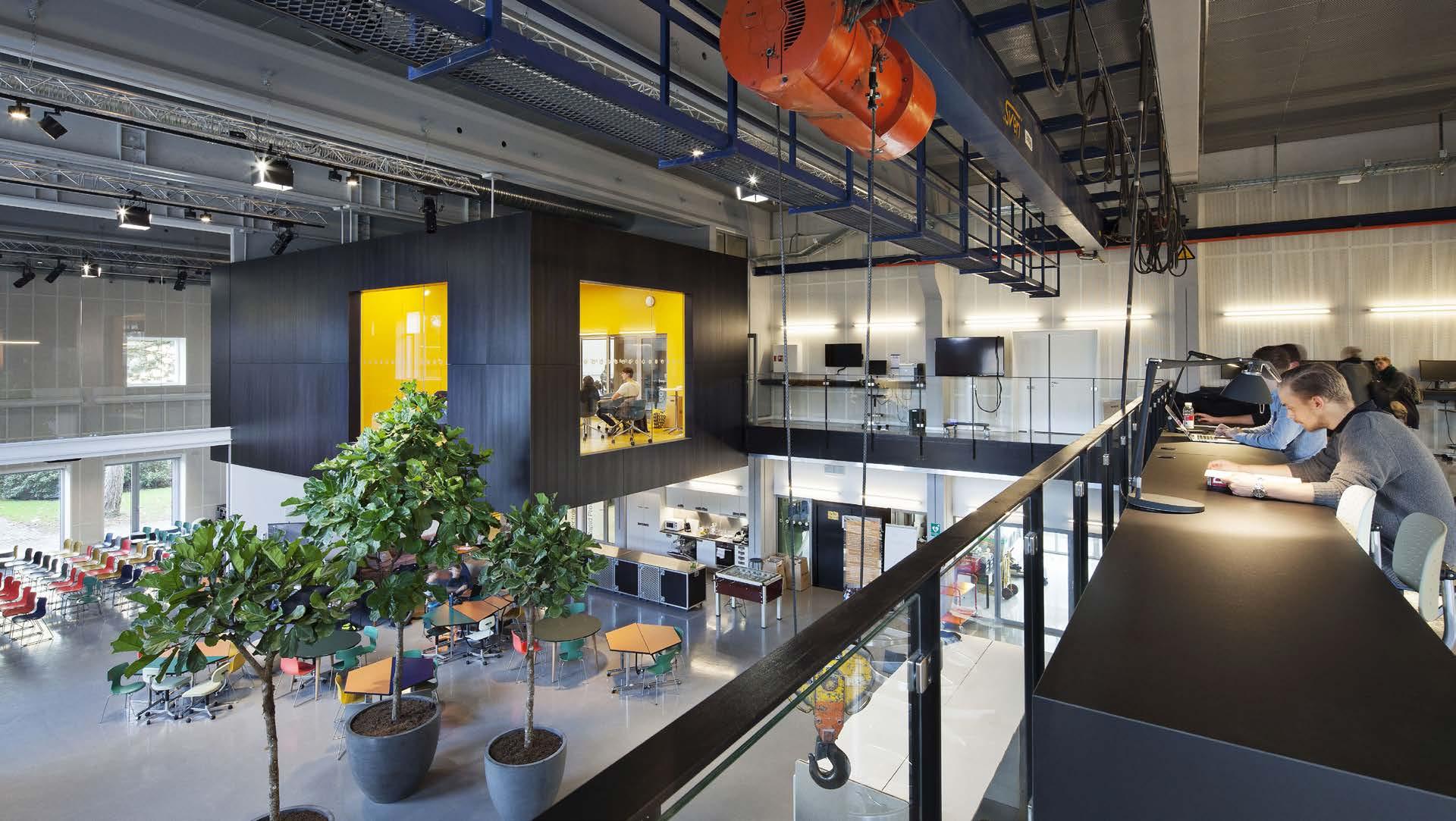
At DTU, we offer a broad range of MSc programmes taught exclusively in English. The programmes follow a flexible course structure and offer honours tracks.
Every programme is different, and with 31 MSc Eng programmes, there’s much to choose from. You can choose between a lot of different subjects and types of programmes – such as an Industry MSc, an MSc programme in Technology Entrepreneurship or one of our joint MSc programmes offered together with partner universities in both Denmark and abroad. No matter your chosen programme, you will get a research-based education, teaching you to turn your knowledge into technical solutions.

The Industry Master of Science in Engineering is a great opportunity for those of you who want to combine work with part-time study and obtain a full MSc degree over a four-year period.
At DTU, we offer the opportunity under all our MSc programmes except for Sustainable Fisheries and Aquaculture (cand. polyt.), Ocean Engineering (cand. polyt.) and Technology Entrepreneurship (cand.tech.).
Prerequisites The prerequisites are similar to the ones that apply to the two-year programme but in addition, you must have a relevant job where you work at least 25 hours a week, or you may be self-employed in a start-up company.
Non-EU/EEA citizens already working in Denmark can apply for the Industry Master of Science in Engineering. It is strongly recommended that applicants first check the rules and implications for their current work permit with the Danish Agency for International Recruitment and Integration.
application and conditions
Our Honours programmes are for the most talented students who wish to follow a particularly challenging course of study. It is estimated that only the top 10 per cent of applicants are eligible for the Honours Programme.
We offer the honour track as part of all our MSc programmes.
The advantages are:
• An internationally recognized researcher from a leading research institution as a personal tutor.
• An individually designed study plan comprising substantial free-standing elements such as seminars and/or project work. The study plan is in accordance with the learning objectives of the MSc programme and is planned within the prescribed completion time.
• A semester abroad. The semester abroad can take the form of studies or research at an international institution of higher education or a project at a company outside Denmark.
• Participation in at least one international research conference, workshop, or summer university module.
• Research affiliation outlined in the individual study plan, including one or more research and/or development projects.
Admission Students wishing to enrol in the Honours Programme must apply to do so when applying for their MSc programme at DTU and must meet requirements over and above the general requirements for MSc entry.
Candidates must:
• Have completed their undergraduate degree at an extraordinary level minimum grade average of 10 on the Danish national grading scale or similar.
• Have demonstrated significant levels of ambition and competence as part of their studies so far.
• Possess outstanding intellectual and personal qualities (to be assessed in interview).
• Include a separate letter describing why they have chosen to apply for the Honours Programme. The letter should also describe courses taken and any areas of particular interest. and learn more about honours programmes Click here

The Master of Science (MSc) programme —a two-year programme—consists of 120 ECTS credits and picks up where the BSc programme left off. The MSc programme provides you with more in-depth knowledge about your subject area. You also learn about teamwork and collaboration, preparing you for your future working life.
The MSc programme is divided into individual study programmes, all of which include four course blocks.
Specializations have been developed for most of the MSc programmes. Doing a specialization will result in a more specialized educational profile. The programmes have a cross-disciplinary content and provide graduates with a unique set of engineering qualifications, only obtainable from the DTU research and innovation environment.
> You can see the individual specializations under each MSc programme
The polytechnical foundation Elective courses Programme specific courses
Programme specific courses
The programme specific courses ensure that you gain an understanding of the core elements in your subject area and that you acquire the latest technological knowledge and competences in your subject area.
30
Master’s thesis
The master’s thesis is the final project in your study programme. Here you will have the opportunity to work independently with a topic of your choice containing elements of the latest research in the field in question.
The polytechnical foundation
The polytechnical foundation of the MSc programme ensures that you learn computational models for creating sustainable solutions. You will also acquire knowledge about innovation processes— including teamwork, entrepreneurship, and business acumen —all related to specific academic or interdisciplinary content of your study programme.
Elective courses
You can use the elective courses to achieve additional cutting-edge competences in your subject area and to supplement your study programme with higher education basic science subjects or with relevant subjects from other study programmes.
DTU offers MSc programmes in all modern fields of engineering, giving students the widest possible choice. The structure and content of the various programmes reflect DTU’s status as a high-ranking elite university in engineering.
MSc Eng programmes
> Applied Chemistry
> Architectural Engineering
> Autonomous Systems
> Bioinformatics and Systems Biology
> Biomaterial Engineering for Medicine
> Biomedical Engineering
> Biotechnology
> Business Analytics
> Chemical and Biochemical Engineering
> Civil Engineering
> Communication Technologies and System Design
> Computer Science and Engineering
> Design and Innovation
> Earth and Space Physics and Engineering
> Electrical Engineering
> Engineering Acoustics
> Engineering Light
> Engineering Physics
> Environmental Engineering
> Food Technology
> Human-Centered Artificial Intelligence
> Industrial Engineering and Management
> Materials and Manufacturing Engineering
> Mathematical Modelling and Computation
> Mechanical Engineering
> Ocean Engineering
> Pharmaceutical Design and Engineering
> Sustainable Energy Systems
> Sustainable Energy Technologies
> Sustainable Fisheries and Aquaculture
> Wind Energy MSc programme
> Technology Entrepreneurship
Industry MSc programme
> Biomanufacturing
Joint national MSc programmes
> Business Administration and Bioentrepreneurship (CBS and UCPH)
> Quantum Information Science (UCPH)

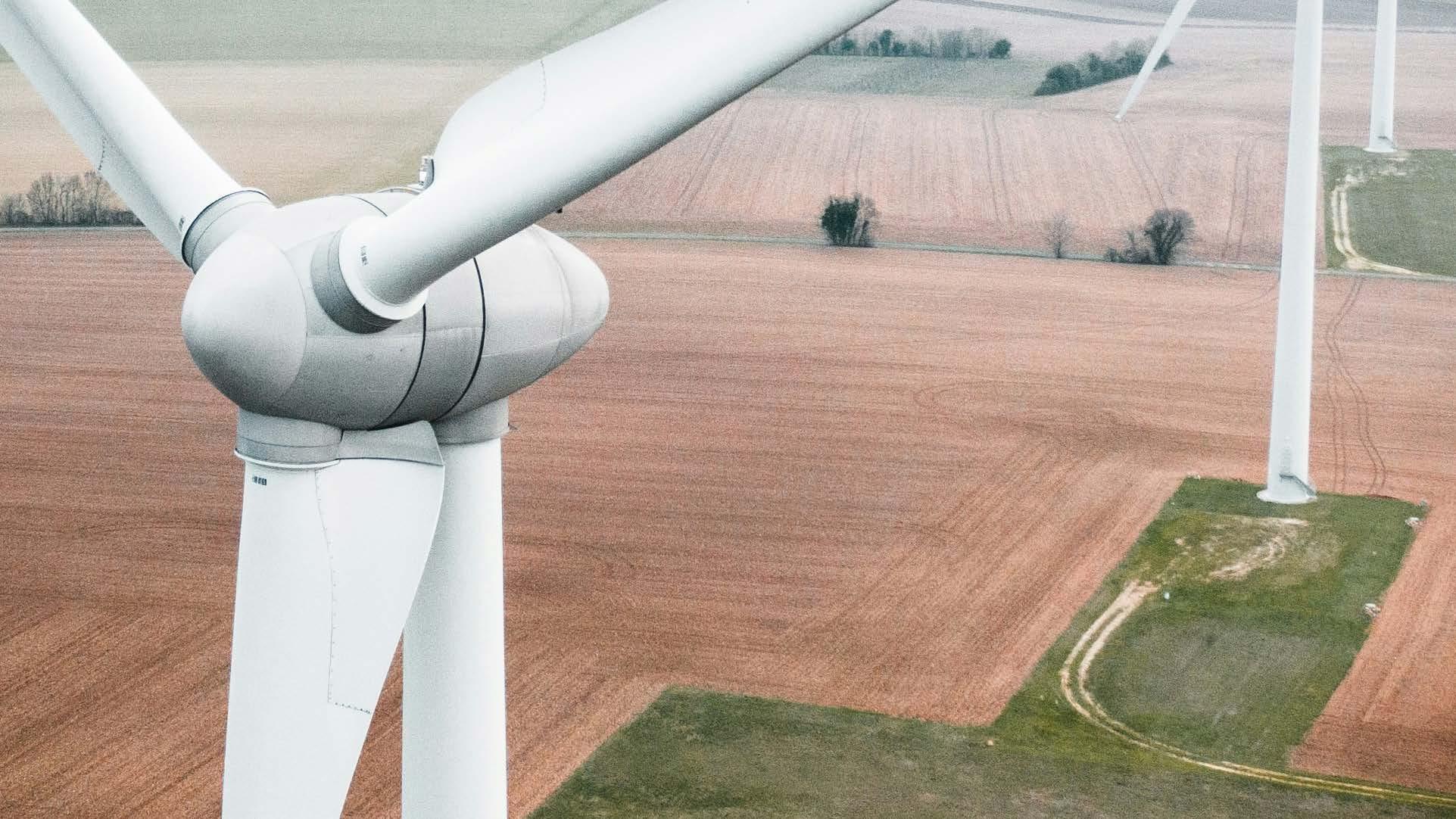
As a DTU student, you have plenty of options for going abroad as a part of your studies – from doing a semester in Shanghai to following a set programme in Stockholm or spending your summer in Chicago. Anything is possible.
You can take a semester or two at one of our more than 100 partner universities across the globe. You can get a structured, international experience with one of our joint international programmes. You can dive into the world of virtual exchange as a part of the EuroTeQ network, arrange your own stay abroad, or join a summer school for a time you will never forget.
On the following pages, you can learn more about all the opportunities we offer our students who wish to explore different learning environments as a part of their studies. Enjoy your time learning at DTU and across the world.
Boost your MSc degree and your CV by spending some time at one of DTU’s partner universities in Scandinavia, Europe, or Asia. DTU has close partnerships with some of the best global technical universities, giving you the chance to complete a unique joint international MSc programme.
You gain access to elite programmes and benefit from the combined competences, knowledge, and facilities of each university. Studying abroad jump-starts your career as employers are always looking for graduates with an international outlook and intercultural competences.
Erasmus+ DTU collaborates on student exchanges with approximately 45 European universities under the EU Erasmus programme. DTU is also part of the Erasmus Mundus elite master’s programme within Security and Cloud Computing, which allows you to spend one year at DTU and one year at a partner university to earn a double degree.
Security and Cloud Computing (SECCLO) SECCLO is an Erasmus Mundus Joint Master Degree programme in the field of computer science, more specifically in information security and cloud computing. We combine practical engineering skills is on combining strong security knowledge with handson R&D skills in a specific technical area, cloud computing. The consortium consists of six highly ranked technical universities in Finland (Aalto University), Sweden (KTH),
Norway (NTNU), Estonia (Tartu), and France (Eurecom). SECCLO aims to educate highly professional engineers to meet both the immediate hiring requirements and the long-term needs of the European ICT industry.
The EuroTech Universities Alliance Study at one of the leading technical universities in Europe through the EuroTech Universities Alliance and get access to the complementary strengths of each university. EuroTech consists of École Polytechnique (L’X) in France, Eindhoven University of Technology (TU/e) in the Netherlands, Technische Universität München (TUM) in Germany, and DTU. DTU offers five 1:1 programmes with TUM, and one 1:1 programme with TU/e. These programmes allow you to spend one year at the partner university and one year at DTU to earn a degree from DTU and a certificate from the partner university.
Nordic Master and Nordic Five Tech (N5T) Get the full Nordic experience and access to the Nordic labour market with the Nordic MSc programmes. The programmes are based on shared Nordic values and strongholds such as a student-oriented learning environment and a green environmental focus, and utilize the unique strengths of each university. You will receive an MSc degree from each of the two attended universities. Choose between Aalto University (Aalto) in Finland, Norwegian University
of Science and Technology (NTNU) in Norway, Chalmers University (Chalmers), and Royal Institute of Technology (KTH) in Sweden.
European Wind Energy Master (EWEM) The European Wind Energy Master is an international MSc programme. The EWEM consortium involves four world-leading universities in offshore wind energy research and education: Delft University of Technology (TU Delft) in the Netherlands, Norwegian University of Science and Technology (NTNU) in Norway, Carl von Ossietzky Universität Oldenburg (UOL) in Germany, and DTU.
Korea Advanced Institute of Science and Technology (KAIST) Get the chance to study at one of the highestranking technical universities in Asia and the leading technical university in Korea for a unique educational and cultural experience. You spend one year at KAIST and one year at DTU and receive a double degree.
Sino-Danish Center (SDC) DTU offers one MSc programme at the Sino Danish Center for Education and Research (SDC) where you will spend two years in Beijing, China.

DTU offers students the opportunity to enrol in one of DTU’s joint international MSc programmes that we offer in collaboration with a number of acknowledged elite universities from around the globe. Students enrolled in a joint programme will spend one year at DTU and one year abroad.
Joint programmes at Kaist
> Electrical Engineering
> Engineering Acoustics
> Mechanical Engineering
> Offshore Wind Energy
Joint programmes under Nordic Five Tech
> Cold Climate Engineering
> Evironmental Engineering
> Extended Campus Programme - Battery Specialization
> Innovative Sustainable Energy Engineering
> Maritime Engineering
> Polymer Technology
Joint programmes under EuroTech
> Energy Conversion and Storage (TUM)
> Engineering Physics (TUM)
> Environmental Engineering (TUM)
> Management (TUM)
> Space and Geodesy (TUM)
> Sustainable Energy Technology (TU/e)
Joint programmes with other universities
> Arctic Mineral Resources (Nordic Master)
> European Wind Energy Master – EWEM
> Security and Cloud Computing – SECCLO (Erasmus Mundus)
> Sustainable Aquaculture (NTNU)
Joint programme under SDC*
> Life Science Engineering and Informatics
*Please note that you will spend two years at the Sino-Danish Center in Beijing in China.

As a DTU student, you have plenty of opportunities for spending some time abroad during your studies—from doing a semester in Shanghai to following a set programme in Stockholm. Anything is possible.
Exchange abroad If you wish to study abroad for one or two semesters as a part of your DTU degree, going on an exchange is the natural choice. With more than 100 international partner universities across the globe, there are many interesting universities to choose from— some of which are among the best universities in the world.
International online courses Though DTU’s EuroTeQ partnership, you can supplement your studies with online courses from seven leading European technical universities. With access to over 100 courses across various disciplines, you can tailor your curriculum, gain international perspectives, and build global connections—all while staying at DTU.
Summer school abroad Going on summer school abroad may be ideal if you wish to study abroad for a shorter period of time. This way you can complete 5 to 10 ECTS points over the summer and still experience a different university culture and get a taste of international student life.
Self-arranged studies abroad If you have the time and resources, you are free to arrange your own studies abroad. This may for example be relevant if the university of your choice is not one of DTU’s many partner universities.



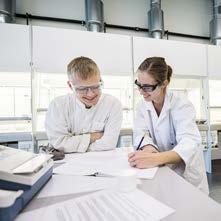
Focusing on chemical and biological systems at both molecular and nanoscale level, this programme covers advanced courses and projects within the key disciplines of chemistry. Through theoretical and experimental courses covering inorganic, organic, physical and computational chemistry, you acquire comprehensive knowledge of the design and production of advanced materials and products.
Career prospects This programme offers a wide focus and a large variety of courses, giving graduates an excellent opportunity to build a career within both private companies and public institutions. With an MSc in Applied Chemistry, you are qualified for jobs in the chemical (including catalyst and polymers) industry and the pharmaceutical industry.
Specializations
– Catalysis and Sustainable Chemistry
– Molecular Physical Chemistry
– Polymer Engineering
– Protein Chemistry
– Synthesis and Medicinal Chemistry


This MSc Eng programme enables you to influence the design of future buildings. Depending on your area of specialization, you can use your extensive knowledge of architecture and other engineering disciplines to integrate the various sub-solutions of a building project into well-functioning units—e.g. components, buildings, technical facilities, or entire districts. The programme offers a wide variey of courses in areas such as energy, load-bearing structures, installations, indoor climate, fire safety, acoustics, lighting, urban planning, consumer behaviour, project management, and building information modelling.
Career prospects As an MSc in Architectural Engineering, you will be involved in the early project stages of construction, contributing to innovative and optimized building projects.
Specializations This MSc programme contains no predefined specializations. Instead, you can put together your own study plan and your own tailored profile through your choice of courses.
Autonomous systems are entering our working, urban, and domestic environments. Imagine fleets of smart robots that collaborate in manufacturing facilities, advanced warehouse logistics solutions such as the Amazon warehouses, crew-less cargo ships, smart grids, or interconnected smart home appliances. The MSc in Autonomous Systems equips you to participate in and lead work related to the design and deployment of autonomous systems, exploiting the latest advances in artificial intelligence, big data analysis, digitization, sensing, optimization, information technologies, and systems engineering.
Career prospects With an MSc in Autonomous Systems, you can pursue a career in various production and service industries in both private and public organizations. For instance, you can have a career as an AI developer, production manager, systems engineer, IT consultant—to mention but a few.
Specializations This MSc programme contains no predefined specializations. Instead, you can put together your own study plan and your own tailored profile through your choice of courses.

This MSc Eng programme focuses on the use of computer-based methods and mathematical models to analyse the vast amounts of biological data produced using high-throughput methods. Examples of biological data include DNA and protein sequences, mRNA levels, lists of post-translational modifications, protein-protein interaction data, and metabolic pathway information. Although computational analysis accounts for a large part of the programme, students also gain a deep understanding of the underlying molecular biology and the experimental methods used to generate the large volumes of data.
Career prospects Future career opportunities include management positions or biomedical research at universities or in the biotech and pharmaceutical industries.
Specializations
– Biomedical Bioinformatics
– Infectious Disease Health Informatics
– Bioinformatics Methods in Life Science


This programme focuses on the design and fabrication of advanced materials for applications within the healthcare sector, including engineered solutions for improved drug delivery, molecular diagnostics, and materials for healthcare products. These are highly cross-disciplinary fields where the medicinal product is a fusion between advances in chemistry, immunology, molecular biology, and material science.
Career prospects Because the programme focuses on product development, candidates will be very attractive for the healthcare and medical industry, which is one of the largest and fastest-growing sectors in Denmark. Typical job functions are within research, development, quality control, and approvals.
Specializations
– Drug Delivery Systems Engineering
– Healthcare Materials Engineering
– Diagnostics Technology Engineering
- Cell Therapy
Focusing on the design of future diagnostic and treatment methods at hospitals and in the field, this is an interdisciplinary programme offered by DTU in collaboration with the University of Copenhagen. The programme provides you with in-depth knowledge of the clinical problems facing the modern healthcare sector—enabling you to develop new technological solutions—and covers both engineering and human physiology courses, ranging from the functions of the organs at cell level to development of healthcare products conforming to medical device regulation.
Career prospects You will have the opportunities to work with the development of measuring methods and equipment, clinical research, testing and maintenance of complex technical installations; product development, test planning, sales, marketing, and service; teaching and research.
Specializations
This MSc programme contains no predefined specializations. Instead, you can put together your own study plan and your own tailored profile through your choice of courses.

Sustainable manufacturing of bioproducts as an alternative to chemical production requires engineers with cutting-edge competences within biotechnology. This programme provides you with knowledge and skills for mining of genes, exploration of organisms and biomolecules from nature, development of recombinant cell-factories, optimization and running of fermentation processes, purification and quality control of products, and most importantly: innovations within biotechnology.
Career prospects Job opportunities in the biotech industry within research, development, and production, as well as in consultancy firms and in the public sector (research, teaching, or governance).
Specializations
– Biosystems Engineering
– Cell Factory Engineering
– Protein Engineering
– Fermentation Based Biomanufacturing

The MSc Eng in Business Analytics prepares you to work with advanced methods from data science and optimization to solving critical business challenges. You will not only be able to work and manipulate data but, most importantly, you will learn how to transform data into actionable decisions that meet value creation goals. During the course of study, you will work with quantitative methods, such as descriptive statistics, forecasting, clustering, simulation, and optimization as well as qualitative methods for analysing, managing, and implementing data-driven projects in business and society.
Career prospects MSc Eng graduates in Business Analytics will likely find jobs in banks, large production and service companies, in the transport industry, or in research institutions.
Specializations
– Predictive Analytics
– Prescriptive Analytics
– Transport Analytics
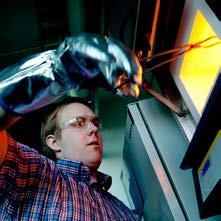
This programme focuses on the design and fabrication of advanced materials for applications within the healthcare sector, including engineered solutions for improved drug delivery, molecular diagnostics, and materials for healthcare products. These are highly cross-disciplinary fields where the medicinal product is a fusion between advances in chemistry, immunology, molecular biology, and material science.
Career prospects Because the programme focuses on product development, candidates will be very attractive for the healthcare and medical industry, which is one of the largest and fastest-growing sectors in Denmark. Typical job functions are within research, development, quality control, and approvals.
Specializations
– Chemical and Biochemical Process Technology
– Chemical and Biochemical Product Engineering
– Energy and Environmental Engineering
– Fermentation Based Manufacturing
– Biomanufacturing (Industry MSc, Kalundborg)

The mission of the civil engineering profession is to enable sustainable human flourishing; it deals with the design, construction, maintenance, reuse, recycling, and digitalization of the built environment. The profession is essentially a ‘learned profession’ with technical knowledge that keeps evolving to meet ever-changing challenges.
Career prospects Graduates work as independent experts in consulting or construction companies; they also work for material and equipment manufacturers, infrastructure owners, and educational institutions.
Specializations
– Bridges, Pavements, and Large Structures
– Building Services
– Cold Regions
– Digitalization
– Geotechnical Engineering
– Marine and Coastal Engineering
– Mechanics of Materials
– Project Management
– Structural Engineering
– Subsurface Engineering
– Sustainability
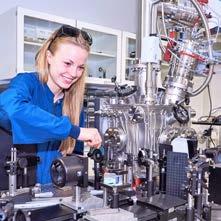
Communication Technologies and System Design engineers contribute to the development of the technology on which modern society relies. This programme covers areas ranging from advanced component and system design through complex network structures to the development of services and ICT solutions that meet user expectations. Courses include three central, traditional disciplines that share a common technical-scientific basis: component and software design, system development and methods, and applications.
Career prospects Graduates are qualified to conduct research, development, planning, and analysis tasks in several areas related to communication technologies.
Specializations
– High-speed Communication
– Signal Processing, Coding, and Visual Communication
– Mobile/Wireless Communication and Internet of Things
– Communication Software and Cyber Security
– Enabling Technologies for Communication System Design
– Synthesis and Medicinal Chemistry
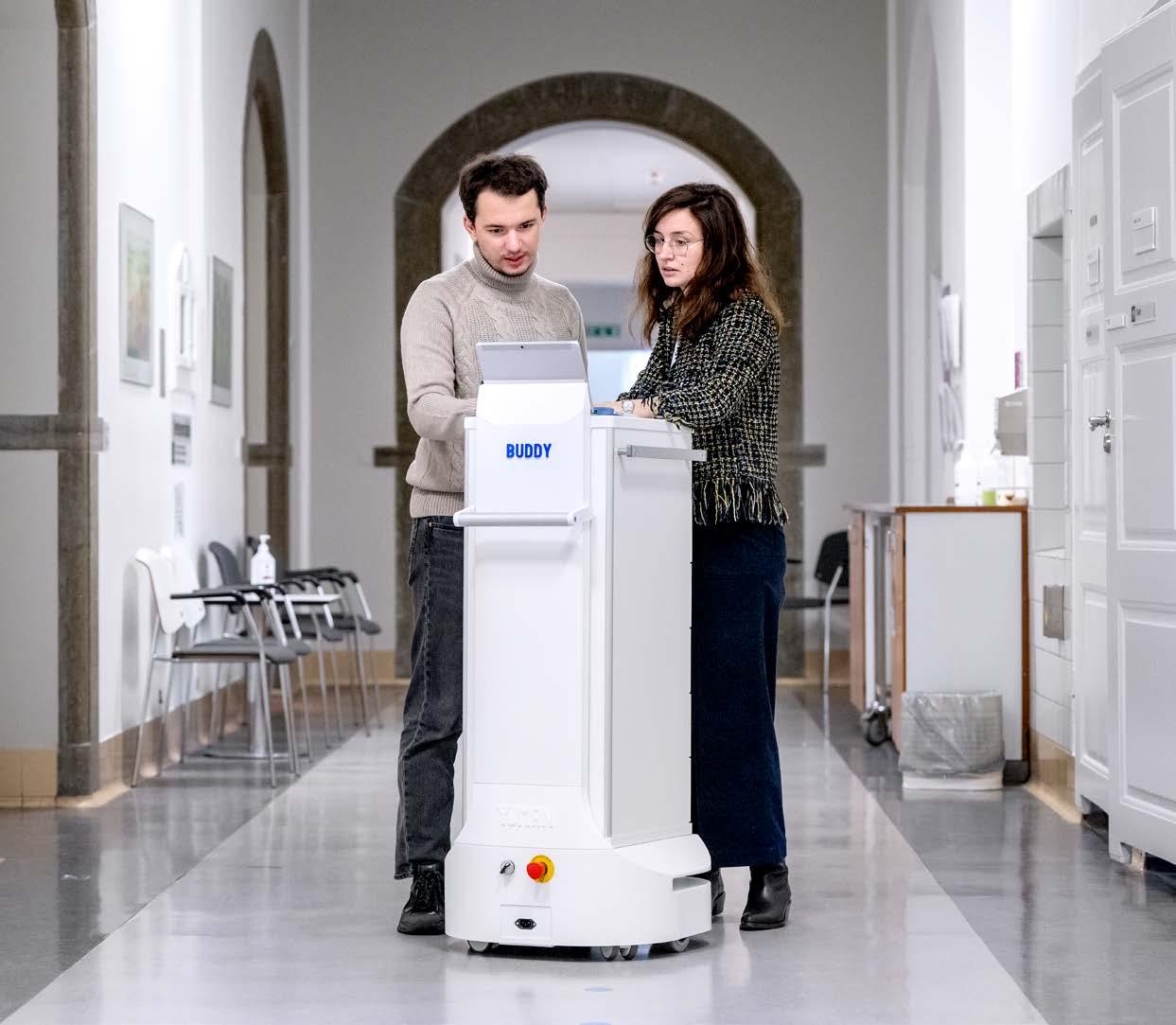
Imagine a society where nurses have much more time to treat and care for their patients. With the new robot Buddy, that is within reach. Buddy helps nurses by bringing them crucial medical equipment, allowing them to spend time on treatment instead of transportation. The project was created by two DTU students who used their engineering skill set to build Buddy and turned the project into a thriving start-up company.
Students: Sara Lopez Alaguero, Honours MSc in Computer Science and Engineering
Andrei Chirtoaca, MSc in Computer Science and Engineering
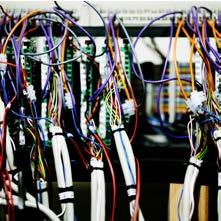
As a student on this programme, you will concentrate on the design and use of computing components—both software and hardware—and learn to solve technical problems efficiently and competitively. Central to the programme is the understanding and application of the right abstractions for advanced IT solutions that typically include both existing and future components. You can choose from a wide range of courses in software development, safe and secure IT systems, algorithms and logic, knowledge-based systems, and distributed and embedded systems.
Career prospects Our highly qualified graduates find rewarding careers in a wide range of Danish and international companies involved in IT, electronics, and communication.
Specializations
– Artificial Intelligence and Algorithms
– Computer Security
– Digital Systems
– Embedded and Distributed Systems
– Safe and Secure by Design
– Software Engineering

This programme provides you with the proper tools and methods to combine structured problem solving, user engagement and technical disciplines in a range of innovation projects. Design and Innovation equips you with the competencies required for carrying out engineering and organizational development design tasks. The programme builds on both design science as well as technical disciplines.
Career prospects With an MSc in Design and Innovation, you can work in engineering design, product and service development and innovation management. You can for example work as a industrial designer, system developer, systems engineer or as a product or development engineer in an industrial company. Furthermore, you might have the opportunity to continue your studies and do a PhD, for instance at DTU.
– Design of Complex Technical Systems
– Design of Circularity and Sustainability
– Design of Smart Products and Systems

This programme provides you with competences within research and development of satellite, space-, aircraft-, and ground-based measuring methods as well as mathematical and physical models for monitoring, mapping, and exploring large-scale physical structures and processes on Earth and in the universe. The programme focuses on the development, design, and application of innovative and advanced technological solutions with a view to developing sustainable, advanced solutions for use in e.g. climate and environmental monitoring, the search for new resources, space exploration, or mapping and navigation on Earth.
Career prospects Graduates are eligible for positions in areas such as environmental and climate monitoring, mapping, and navigation as well as Earth and space exploration.
– Earth and Planetary Physics
– Earth Observation
– Mapping and Navigation
– Space Research
– Space System Engineering

The MSc programme in Electrical Engineering allows you to engage in work at all levels— including advanced theories, methods, and components for practical systems and applications in e.g. satellites, robots, and wind turbines. You will learn to understand the theory and apply mathematical methods for designing or analysing problems within a given area.
Career prospects With an MSc in Electrical Engineering, you can pursue a career in various production companies, for instance in a development department, in areas such as electric power, audiology, medical electronics, mobile communication, radar technology, or satellite communication.
Specializations
– Acoustics
– Automation and Robot Technology
– Electric Energy Systems
– Space Technology
– Wireless Engineering
– Electronics

As an exciting research area, the programme focuses on multidisciplinary studies of sound and vibration phenomena. The programme covers a wide range of topics within acoustics—including the fundamentals of sound propagation, advanced measurement techniques, and understanding and modelling of the normal and impaired human hearing system. The choice of courses ranges from human hearing and reaction to sound, acoustic measurement methods, electroacoustic systems, architectural acoustics, environmental acoustics, and noise and vibration control.
Career prospects The MSc in Engineering Acoustics provides a good basis for global employment with electrical, audio, and audiology companies, universities and research centres, or consultancy firms specializing in acoustics.
Specializations
– Audio and Transducer Technology
– Hearing Science and Perception
– Architectual Acoustics and Environment
– Vibration, Structures and Sound
– Signal Processing and Machine Learning

Light engineering is essential for our high-tech society today. And it will continue to be a focus of research and development in the future. The programme encompasses all technological aspects related to light: From basic science to applications. The courses include classical optics, nano- and quantum-photonics, fabrication of nano-photonic materials and devices, instrumentations and applications of optics and photonics within many multi-disciplinary fields. The programme places great emphasis on both innovation and development of solutions to scientific and societal challenges.
Career prospects The MSc in Engineering Light qualifies you for employment within laser, optical communication and bio-photonic industry and academic research sectors.
Specializations
– Instrumentations and Applications
– Materials and Components
– Quantum Photonics

This MSc Eng programme centres around physics as the basis of modern technology. The programme covers a wide range of technological, theoretical, and experimental techniques and topics such as the development of nanostructured materials with tailormade electrical, magnetic, optical, mechanical, and chemical properties; manufacturing and integration of nano- and micro-components in systems design; modelling of complex biological systems; optical data processing and transfer; and the development of technologies for sourcing, storing, and converting sustainable energy—e.g. fuel cells and hydrogen technology.
Career prospects Advanced physics skills are applicable in a broad spectrum of areas, but graduates work primarily in the field of research and development in private and public companies.
Specializations
– Lifescience Physics
– Materials Physics
– Nanosystems Engineering
– S– Energy Physics
– Quantum Engineering
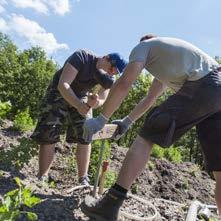
Focusing on the technical and environmental sciences, this programme aims to provide students with the competences needed to develop sustainable solutions to complex environmental issues, while also considering legal, societal, financial, and ressource aspects. You will gain in-depth knowledge of the physical, chemical, and biological processes behind local and global environmental challenges, be involved in experimental projects, and learn about the processes through mathematical models and statistical analysis of data and measurements.
Career prospects An MSc in Environmental Engineering provides you with many future career options in public administrations, companies, or organizations offering environmental and construction consultancy services.
Specializations
– Climate Change, Mitigation and Adaption
– Environmental Chemistry and Contamination
– Environmental Informatics
– Environmental Sustainability Assessment
– Waste Technology and Mangement

The MSc programme in Food Technology integrates knowledge in mathematics, physics, chemistry, and microbiology, offering engineering competences for producing healthy and safe food. It includes courses in sustainable food process engineering and manufacturing of new ingredients from sustainable sources (e.g. algae), food safety and innovation with industry involvement. Students collaborate with companies on real-life projects, gaining practical experience and industry insights. The programme enables students to design, optimize, and evaluate food processes, and to develop innovative solutions for complex engineering challenges in the food industry.
Career prospects With an MSc degree in Food Technology, you will be qualified for positions in Research and Development (R&D) and Quality Control (QC) departments of food companies or related industries. The degree also opens up job opportunities in the public sector, such as working for food authorities. Additionally, you will have the option of pursuing research training leading to a PhD.
Food Innovation
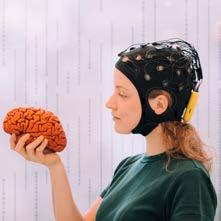
In an area characterized by constant change, there is a need for engineers who will not be constrained by new technologies, but rather gain strong technical competences to develop new types of interaction between people and software—which is relevant in connection with game design, personalization of media content, or smartphone apps using sensors to model how we perceive the surrounding environment. This programme provides you with a deep understanding of the underlying digital media technologies and related business aspects.
Career prospects Career opportunities in a wide range of highly specialized areas—including user experience design, app development, data science, and computer graphics.
Specializations
– AI and Cognition
– Machine Learning at Scale
– Social Media, Mobile Apps and Data Science
– User Experience, Mobile Health and Personal Informatics
– Computer Vision and Computer Graphics
– Computer Games

This MSc Eng programme combines the field of engineering with planning, innovation, and management competences. The courses offered will provide you with both quantitative and qualitative management competences. You will work with mathematical optimization (operations research), simulation, and other quantitative tools together with a number of process tools that are crucial in the context of project and change management. Additional focus areas include operations management, supply chain management, innovation management, and sustainability.
Career prospects Industrial Engineering and Management graduates typically find jobs in private or public sector companies or organizations within project management, consultancy, or development positions in a wide range of areas.
– Sustainability Management
– Management and Analysis of Operations
– Production and Project Management
– Supply Chain Management and Logistics

The focus in this MSc Eng programme is the application of materials as well as process and production technologies in high-tech products within various fields—including energy production, the automotive and aeronautical industries, medical devices, and communication. The programme enables you to predict, control, and optimize material properties, and to analyse and optimize the industrial process technologies that are relevant for advanced products at both micro and macro scale.
Career prospects Graduates have career opportunities in various industrial areas, including energy production and storage, transport, building and construction, (micro)electronics, food production, medical devices, automation, and robotics.
– Materials Engineering
– Manufacturing Engineering
PROJECTS POWERED BY TECHNOLOGY
VERMILLION RACING
Every year, DTU students assemble to produce a fully functional Formula Electric vehicle and take it to the race. The race is the British formula student competition FSUK on the legendary racetrack Silverstone. To get there, the students need to collaborate and use their knowledge from across the engineering field to create the best possible vehicle. So, do you have a need for speed? Or a passion for teamwork and technology? Then, it’s time to join the race.
Students:
Mathilde Lei, MSc in Applied Chemistry
Lea Emilie Reymond Ajslev, MSc in Design and Innovation
Mathias Schwartzbach, BEng in Electrical Engineering
Tobias Klindt, MSc in Industrial Engineering and Management
Marcus Rebsdorf Hemcker BSc in Mechanical Engineering
Line Cecilie Udsen, MSc in Industrial Engineering
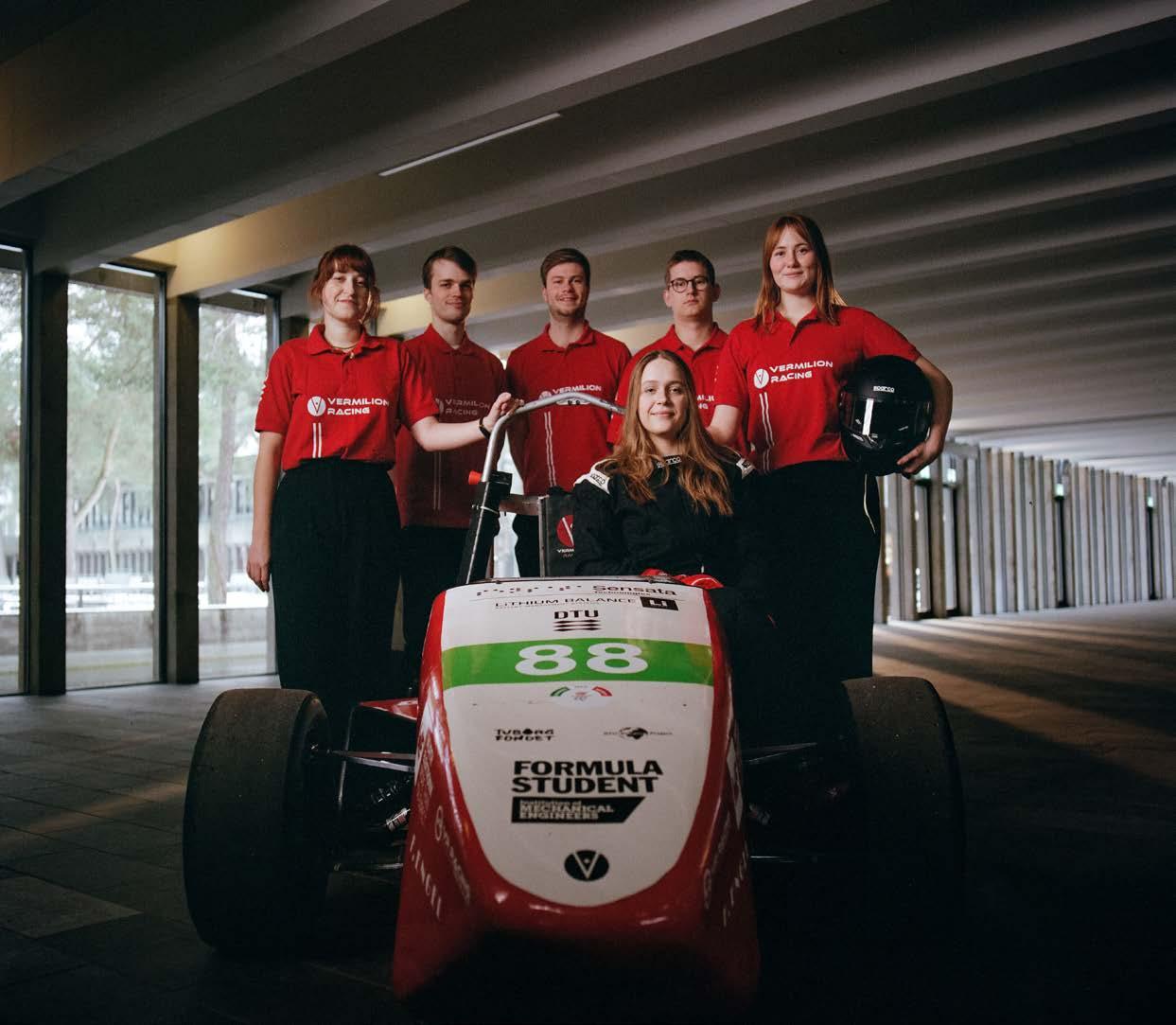

This MSc Eng programme will provide you with extensive knowledge of applied mathematics and mathematical modelling as well as modern computer equipment and analysis of large data volumes. Mathematics is an integrated part of our everyday lives, and its use will become even more prevalent in the future. There is an everincreasing demand for mathematical models and methods in e.g. industrial applications, information technology, financial institutions, energy, government issues, drug development, DNA mapping, and environmental research.
Career prospects Graduates are qualified for jobs in industry and academia: the IT sector, consulting engineers and other consultancy firms, the pharmaceutical industry, logistics and development departments, and private and public research institutions.
Specializations
– Applied Mathematical Analysis
– Computational Modelling and Simulation
– Discrete Mathematics and Secure Computing
– Machine Learning and Data Science
– Operations Research and Optimization
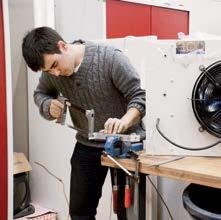
This programme is aimed at students who want to participate in the development of new and better solutions based on the laws of mechanics. The programme covers systematic engineering design methods within engineering design and product development as well as analysis, numerical simulation, and optimization with a focus on the strength of structures, fluid flows, and energy conversion.
Career prospects Graduates are employed in development and research departments and as consultants, and are involved in the development of new and better solutions for products, mechanical components, production equipment, and industrial installations. The focus of the solutions may range from microstructures—such as parts for hearing aids or mobile phones—to engines, turbines, wind turbines, ships, and offshore structures.
Specializations
– Engineering Design and Product Development
– Strength and Dynamics of Structures
– Industrial Fluid Mechanics
– Energy Engineering
– Maritime Engineering
– Naval Architecture & Offshore Engineering


The overarching aim of the programme is to provide graduates with science-based engineering skills for sustainable development of the blue economy. There is a growing need, both in Denmark and abroad, for expertise in maritime industries—such as off-shore energy, shipping, fisheries, marine spatial planning, and coastal engineering—sectors that are expected to grow in the coming years. Science-based engineering solutions for sustainable blue growth require both an understanding of the marine environment—both its physical and living components—as well as the knowledge and skill needed to implement engineering solutions in a marine setting.
Career prospects The programme provides graduates with a unique set of skills that are highly sought after in various marine engineering sectors. These competences include knowledge of the physical challenges associated with constructing offshore installations, developing technologies for both surface and underwater observations, and describing and modelling interactions with the natural marine environment.
Specializations
– Oceanography
– Applied Ocean Technology
Focusing on how to design, develop, and test drugs in line with the methods applied by the pharmaceutical industry, you will acquire a broad range of competences in all areas of pharma, e.g. immunology, drug delivery and diagnostics. Furthermore, production of drugs such as biologics is as well a part of this programme. Legal aspects related to documentation, approval and distribution of drugs are also included.
Career prospects Graduates from this programme are highly attractive to all parts of the pharmaceutical industry, which has been heavily involved in defining the knowledge profile of the MSc Eng programme and thereby the competences of Pharmaceutical Design and Engineering graduates.
Specializations This MSc programme contains no predefined specializations or recommended courses. Instead, you can put together your own study plan and your own tailored profile through your choice of courses.

This programme provides you with solid knowledge of optimal interactions among various energy technologies and components, as well as optimal operation and coordination of large-scale integrated energy systems, including power, heat, natural gas, hydrogen, and transport sectors. There is a strong focus on the integration of renewable energy sources as well as system and market solutions to accelerate it. For this, you will learn and exploit cutting-edge multidisciplinary solutions based on socio-economic analysis, mathematical programming, advanced modelling and statistical methods, digitalization, and machine learning. You will acquire extensive expertise in various energy system solutions with focus on sustainability.
Career prospects A degree in Sustainable Energy Systems paves the way for a wide range of career opportunities in the business sector, with public authorities, and in research.
Specializations
– Digital Energy Systems
– Energy System Analysis
- Energy-efficient Building Systems

The MSc Eng programme in Sustainable Energy Technologies provides you with qualifications in the development of new solutions for accelerating the transition to a sustainable future. Get a chance to specialize in specific aspects of energy technologies and in the integration of multiple energy solutions as well as providing concepts for integrating these new technologies in the existing energy system. In the coming decades, global energy systems and new energy technologies will undergo major changes, and their sustainability will prove to be of the utmost importance—environmentally, economically, and socially. During the study, you will acquire extensive expertise in various energy technologies with a focus on sustainability.
Career prospects A degree in Sustainable Energy Technologies paves the way for a wide range of career opportunities in the business sector, with public authorities, and in research.
Specializations
– Bio-based Fuels
– Chemical Energy Conversion and Storage
– Solar Energy
– Thermal Energy Conversion and Storage
– Wind Energy

This programme is taught at DTU Hirtshals Campus
This programme focuses on the sustainable utilization of the aquatic environment and its resources, and the development of sustainable aquaculture production. It centres on fisheries, oceanography, and the management of aquatic resources—and addresses the challenges associated with sustainable fisheries and aquaculture as well as the maintenance of healthy ecosystems under changing environments.
Career prospects The MSc Eng programme provides you with unique interdisciplinary competences for working with environmental and sustainability issues. These qualifications are in high demand among companies and organizations involved in aquatic resource research, consultancy, and management.
Specializations
– Fisheries, Biodiversity, and Ressource Management
– Aquaculture

DTU is one of a small number of universities in the world to offer a complete two-year MSc Eng programme in Wind Energy. This study programme is designed to provide you with the competences needed to analyse, design, develop, and operate future wind energy systems. You will have access to state-ofthe-art research facilities and technology and gain extensive knowledge of aerodynamics, aeroelasticity, mechanics, grid connection, and electrical engineering. You can choose to specialize in electrical or mechanical engineering within one of five study lines.
Career prospects As a graduate in Wind Energy, you are qualified for employment in a rapidly expanding international industry, and you can contribute to the development of wind turbines as well as design and control of mechanical and electrical components and systems.
Specializations
– Mechanics and Aerodynamics
– Mechanics of Materials and Structures
– Testing and Measurements
– Electrical Wind Turbine Systems
– Electrical Wind Turbine Technology

PROJECTS POWERED BY TECHNOLOGY
CHROMOLOGICS
The company Chromologics uses science to bring colour to people’s lives. Founded by researchers from DTU, the company applies sustainable fermentation processes to create colourants. By extracting dyes from plants and animal substances, Chromologics has created an eco-friendlier colour production, making the industry greener and life sweeter for everyone who loves colour.

Get a unique opportunity to build your skills as an entrepreneur, and work in diverse teams applying technology for the benefit of people, society, and the world. Join a vibrant start-up community on an all-inone campus fully equipped with world-class research, prototyping facilities and a range of mentors. You will select and validate ideas and develop technologybased solutions. You will explore and define your role in a start-up and have the opportunity to specialise in this role. You can bring your own ideas to the table, work with DTU inventions and patents or with ideas from industry or big science facilities.
Career prospects You will be able to bridge market and technology to create social and sustainable impact, and apply innovation processes to any organization. You will either launch your own start-up, become an intrapreneur, innovation manager, or business developer, just to name a few.
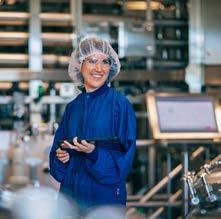
Industry MSc in Engineering in Kalundborg
Are you looking for a future in chemical engineering? Do you want to work while studying? Or do you dream of an exciting career in the rapidly growing field of biotech? Then the specialization in Biomanufacturing (Industry MSc in Engineering in Kalundborg) might be the right fit for you. As a student, you will play an essential part in the fast-expanding industry of chemical and biochemical production. Here you can work with everything from modern medicine to new ingredients for food and feed or the sustainable development of the energy and agricultural sectors.
Career prospects No matter which company you work for, the industry is hungry for talented chemical engineers with specialized skills in process technology and an eye for industrial bioproduction.
Industry MSc Biomanufacturing is an industry MSc programme. To enroll, you must be employed in a biochemical or chemical production company and work an average of at least 25 hours a week.

Joint programme with Copenhagen Business School (CBS) and University of Copenhagen (UCPH)
The MSc in Business Administration and Bioentrepreneurship is part of the BioBusiness and Innovation Platform (BBIP), offering Denmark’s first university degree and academic courses bridging business and biotech. The mix of life science and business students gives you an opportunity to build cross-disciplinary skills and networks. Developed in close cooperation with industry, the programme gives you a unique opportunity to apply your skills to actual business challenges in real-life entrepreneurship projects, and in the business activities of leading life science companies.
Career prospects The life science industry is a key driver in the Danish economy and also globally. To maintain momentum, the sector needs innovation and entrepreneurship to build new firms and to create new business in existing firms. In life science, the steps of transforming research into business are complicated. To handle this transformation, you must both understand the science behind new developments, and also master methods and tools in finance, marketing and much more.

Joint programme with University of Copenhagen (UCPH)
This joint DTU and University of Copenhagen MSc programme focuses on giving students competences in the fast-developing area of quantum information science, quantum computing, and quantum technology. The programme is interdisciplinary in the interface between Computer Science, Mathematics and Physics. In fact, students are expected to have a background within one or several of these fields. During their studies all students will be exposed to diverse aspects of the field ranging from purely theoretical to more technological and experimental. Students are then expected to specialize in one of these directions. More specifically students will gain insight into the software side, i.e. the theoretical framework for Quantum Information and the possible algorithms, and into the different hardware platforms from optical to condensed-matter technologies.
Career prospects This is a new and developing field also on the job market. Current career opportunities are for instance within the areas of communication, security and cryptography, consulting, quantum start-ups, and research.


Joint Nordic master’s programme in Civil Engineering
This unique two year MSc programme, Arctic Mineral Resources, provides in-depth knowledge of designing mineral production processes and infrastructure in the Arctic environment, of economic and environmental aspects of mining in the Arctic as well as sustainable mine project development. Arctic Mineral Resources addresses the strategic importance—but also challenges—of the sensitive Arctic environment.
Career prospects The programme provides you with the skills needed to e.g. work with junior mining companies and consultancies (Mineral Entrepreneurship track covering legislative, social, financial, and other aspects of mining projects) or to work for government and authorities with the evaluation of mining projects, permitting procedures and stakeholder involvement (Mineral Resource Management track).

Joint Nordic Five Tech (N5T) programme under MSc in Civil Engineering and in Earth and Space Physics and Engineering
The Nordic double degree MSc programme in Cold Climate Engineering is the first comprehensive MSc programme in cold climate engineering in Europe, and gives the students a unique possibility to do field work and projects in Greenland or Svalbard. The main focus of the joint programme is to give you a profound understanding of how the obtained specializations can be applied in jobs as researchers, consulting or practising engineers in the Arctic.
Career prospects Graduates are typically employed at consulting, design, surveying and construction companies, in the mining industry, oil companies, governmental bodies, or at research institutes and universities involved in activities related to the Arctic. Your role may be that of chief executive, development manager, team manager, consultant, specialist, or researcher.

Joint programme with KAIST under MSc in Electrical Engineering
This double degree programme has three specializations: “Electrical Energy Systems” qualifies you to analyse, design, and operate electric energy systems. “Space Technology” covers several fields such as spacecraft instrumentation, electromagnetic systems, and remote sensing data from satellites and aircrafts. And “Wireless Engineering” focuses on advanced electromagnetic systems for wireless communication technologies.
Career prospects You will be qualified to work within a wide range of areas ranging from power electronics to space technology and electric energy systems.

Joint EuroTech programme with TUM under MSc in Sustainable Energy Technologies
This 1:1 programme covers various energy technologies focusing on sustainability and renewable energy and offers hands-on experience with energy conversion technologies such as batteries, fuel cells, electrolysis cells, and photovoltaics.
Career prospects Graduates can be employed for projects in companies developing and producing renewable energy technologies and energy conversion technologies, while others will be engaged in project design and the development and implementation of renewable energy projects for e.g. energy companies.
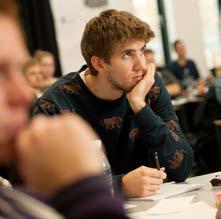
Joint programme with KAIST under MSc in Engineering Acoustics
The double degree programme in Engineering Acoustics spans many topics—such as human hearing and reaction to sound, acoustic measurement methods, electroacoustic systems, architectural acoustics, environmental acoustics, and noise and vibration control.
Career prospects This double degree programme provides a good basis for employment opportunities within fields such as the hearing aid industry, measuring equipment manufacturers, and with firms of engineering consultants.
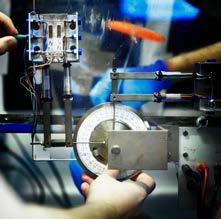
Joint EuroTech programme with TUM under MSc in Engineering Physics
This 1:1 MSc programme focuses on physics as the basis of modern technology. The joint programme is based on the interplay between scientific research and technological breakthroughs, covering topics such as nanostructured materials, nano- and microcomponents in systems design, modelling of complex biological systems, optical data, and the development of sustainable energy technologies
Career prospects The programme covers a wide range of technological, theoretical, and experimental techniques in modern physics. These advanced skills and competences are applicable in many areas, often related to research and development, but graduates also find jobs in the software and consultancy industries.

Joint Nordic Five Tech (N5T) programme under MSc in Environmental Engineering
The focus of this double degree programme is on some of the most pressing political issues facing the world today such as climate change, sustainable generation of energy, management and renewal of aging urban infrastructure, provision of safe drinking water, and contaminated land and waste management. These issues are approached through interdisciplinary studies, bridging all the sciences and placing them in a social, economic, and legal context.
Career prospects A major aim of the programme is to prepare students for a professional career through the integration of professional experience with the double degree programme. This will ultimately increase quality and competitiveness, study motivation and employability.


Joint EuroTech programme with TUM under MSc in Environmental Engineering
This 1:1 MSc programme provides students with the competences needed to develop sustainable solutions to complex environmental issues, while also taking into account legal, societal, financial, and resource aspects.
Career prospects As an Environmental Engineering graduate you will be able to design, conduct, and interpret laboratory and field experiments, and quantify the hazards, risks, and uncertainties associated with environmental problems. You are qualified to work in job functions such as consulting, planning, construction, project leadership and analysis, research, teaching, and management. Typical sectors of employment include water supply, wastewater and resources and soil and ground water remediation.
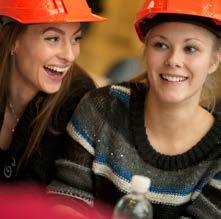
Joint programme with TU Delft, NTNU, and Oldenburg University under MSc in Wind Energy
Receive a double MSc degree from two of four leading European universities in the field of wind energy. Students acquire knowledge in both theoretical and applied sciences underlying wind energy systems in general and the chosen specialization track. The four specialization tracks are: Wind Physics, Rotor Design, Electric Power Systems, and Offshore Engineering.
Career prospects This MSc prepares graduates for a career in research—in both industry and academia.
Admission Apply through TU Delft.

Extended Campus Programme
Battery Specialization
Joint Nordic Five Tech (N5T) under MSc in Sustainable Energy Technologies
This MSc programme focuses on developing competences related to battery technologies. Each partner is expert in a specific aspect of batteries (Aalto: recycling; Chalmers: Materials; KTH: Electrochemistry; NTNU: production; DTU: Modelling and characterization). You will learn to apply advanced methods to discover the batteries of the future and integrate them into the energy landscape.
Career prospects Graduates can be employed for projects in companies developing and producing battery materials and devices as well as being engaged in integrating batteries with other renewable energy systems.

Innovative Sustainable Energy Engineering
Joint Nordic Five Tech (N5T) under MSc in the Sustainable Energy Technologies
This MSc programme focuses on conventional and renewable energy sources like power generation, solar energy, biomass energy, wind power, geothermal power, and energy utilization. You will learn to apply advanced methods to identify, describe, quantify, and find environmentally sustainable solutions to a diverse range of energy engineering problems. Emphasis is also on the innovative and entrepreneurial aspects of the energy society, related to how existing and new efficiency improvement innovations can be brought to market in different countries.
Career prospects Upon graduation you will be able to make key decisions which can contribute to solving climate problems. This double degree programme gives you the necessary knowledge to pursue an international career in the evergrowing energy industry.
Admission Apply thorugh Aalto
The world is drowning in plastic, but with companies like Trebo, it’s not necessarily a problem. The company was founded by DTU students Thomas and Andreas after they discovered a way to use fluids to sort waste containing different types of plastic. With their fluid technology, Trebo ensures that disposable plastic no longer goes to waste but can find new life as reusable products.
Students:
Thomas Trebbien, MSc in Design and Innovation
Andreas
Leth, MSc in Design and Innovation


and Informatics
Joint programme with SDC under MSc in Bioinformatics and Systems Biology
The programme focuses on large-scale biochemistry, e.g. the study of proteins (proteomics), DNA (genomics), RNA (transcriptomics), and biochemical processes (metabolomics) in living organisms. A largescale and data driven approach to these topics is becoming increasingly important for biochemistry research and production, for example in the pharmaceutical and food industries. The programme leads to an MSc degree in Life Science Engineering and Informatics and a Master of Biochemistry and Molecular Biology/Bioinformatics/Genomics from the University of the Chinese Academy of Sciences.
Career prospects Graduates are qualified for work in data-driven enterprises of any size, particularly within the pharmaceutical industry, Biotech, and IT sector. Typical work tasks include analysis of largescale data, clinical chemistry analysis, large-scale DNA/ RNA sequencing, analytical biochemistry incl. mass spectrometry, quality control, product development, and research and development.


Joint EuroTech programme with TUM under MSc in Industrial Engineering and Management
This 1:1 MSc programme focuses on the interplay between management and engineering by combining strategy and innovation, management science and management disciplines.
Career prospects As a graduate from this MSc programme you will be qualified to work within consulting, planning, project management, analysis, optimization, analytics, research, teaching, and management to name but a few fields. Typical sectors of employment include manufacturing management, logistics, and supply chain in a vast range of sectors.

Joint Nordic Five Tech (N5T) programme under MSc in Mechanical Engineering
The main focus of this double degree programme is the design, construction, and technical operation of ships and offshore structures—including hydrostatics and stability, hydrodynamics, wave and wind loads, propulsion, and structural analyses.
Career prospects As a Maritime Engineering graduate, you will typically be employed as a naval architect or offshore engineer by consultancies, design offices, ship owners, ship model basins, maritime administrations, offshore companies, classification societies, or suppliers of special equipment. Your role may be that of chief executive, development manager, team manager, consultant, specialist, or researcher.
Admission Apply through Aalto.

Joint programme with KAIST under MSc in Mechanical Engineering
This double degree programme covers systematic engineering design methods within engineering design and product development as well as analysis, numerical simulation, and optimization with a focus on the strength of structures, fluid flows, and energy conversion. Applied mechanics is used in many contexts requiring extensive knowledge of physical principles, strength of structures, fluid flows, and energy conversion.
Career prospects Most graduates are employed in development and research departments of industrial companies manufacturing high-tech products, in firms of consulting engineers, or in research institutions.

Joint programme with KAIST under MSc in Wind Energy
This double degree programme offers crossdisciplinary knowledge of a wide range of offshore wind power technologies, and provides you with indepth knowledge of aerodynamics, aero-elasticity, mechanics, grid connection, power systems, hydrodynamics, offshore structure design, and wind farm planning, which will qualify you to analyse, design, develop, and operate offshore wind energy systems.
Career prospects Graduates are qualified to work within a wide range of areas related to the offshore wind energy industry—such as wind turbine system design and manufacturing, component design of blades and towers, wind turbine operators, or certification bodies such as the DNV GL.

Joint Nordic Five Tech (N5T) programme under MSc in Applied Chemistry
This double degree programme covers innovative polymer technology engineering topics from different perspectives and teaches students the latest technology of plastics, rubbers, and composites— including aspects of nanotechnology. Through the programme, you will gain an understanding of the properties and use of polymeric materials, including knowledge and understanding of related environmental aspects. In addition, you will learn how polymeric materials are built from molecular to macroscopic level and the relationship between structure and material properties.
Career prospects After graduation, you can pursue a career within a line of fields, ranging from manufacturing or research on chemicals, resins, synthetic rubber, artificial fibres, paints, coatings, plastics, etc.
Admission Apply through KTH.

Joint EuroTech programme with TUM under MSc in Earth and Space Physics and Engineering
The 1:1 MSc programme in Space and Geodesy is a two-year intensive exchange MSc programme for students enrolled at either DTU or TUM. You will spend one year at TUM and one year at DTU. The study programme aims to provide students with state-of-the-art competences within Satellite Geodesy for a wide range of applications. Mapping the Earth’s gravity field and its changes from space is key to understanding the physical processes of, e.g., the hydrological cycle. Satellite-based positioning is important for accurate navigation. In Rocketry, the focus is on developing spacebased technologies.
Career prospects Studying abroad jump-starts your career as employers are always looking for graduates with an international outlook and intercultural competences. Upon graduation, you will be eligible to enter a PhD programme, but you will also be qualified for jobs in the European space industry, developing Copernicus and Galileo, or leading research institutes.

Security and Cloud Computing – SECCLO
Erasmus Mundus programme
Digitalization is taking over most aspects of business and life. While computation relies on distributed data processing and storage, pervasive digitalization goes much further, raising questions regarding security and privacy of data and reliability of computations on this data. This programme gives you a broad understanding of technologies for mobile and cloud computing, and provides you with the skills needed to design, build, and evaluate secure computing systems as a computer science professional.
Career prospects Graduates will be able to design and develop the next generations of products and services for the ICT industry as well as financial companies within the fields of information security and systems.
Admission Apply through Aalto.

Joint programme with NTNU under MSc in Sustainable Fisheries and Aquaculture
This double degree programme covers land-based recirculating aquaculture technology and marine technology and offers a unique competence profile that is highly sought-after by the aquaculture industry. Students learn about new technologies and practices such as recirculating aquaculture systems, plant-based nutrition and bio-economy, optimization of feed and use of therapeutants, and new innovative aquaculture products, which can contribute to the development of sustainable aquaculture.
Career prospects The MSc programme provides students with a unique set of competences that are in high demand in the aquaculture industry, but also in the consultancy sector and among environmental authorities.

Joint EuroTech programme with TU/e under MSc in Sustainable Energy Technologies
This 1:1 programme in Sustainable Energy Technology is an interdisciplinary programme covering aspects such as applied physics, electrical engineering, mechanical engineering, chemistry, materials science, chemical engineering, and innovation science applied to different sustainable energy technologies. You will gain scientific knowledge on and insight into the design, behaviour, and performance of different energy technologies and the integration of these technologies in grids, buildings, and society.
Career prospects Graduates can have careers in specific sustainable energy technologies and/or implementation of such technologies in the energy system. Some Sustainable Energy Technology graduates will be involved in development projects in companies developing and operating renewable energy technologies while others get engaged in research/academia focusing on the further development of and exploration of new sustainable energy technologies or consultancy companies. The 1:1: MSc programme is international— and so is the labour market for graduates.
The academic level of the MSc programmes is highly advanced. The academic prerequisites for admission differ for each MSc programme.
General admission criteria
Degree Bachelor’s degree in Engineering, in Science, or in Natural Science, less than 10 years old and obtained at an internationally recognized university.
Applicants interested in the MSc in Technology Entrepreneurship should refer to the specific admission criteria.
Grade point average Approximately 75 per cent of the maximum obtainable grade. This may vary depending on the grading system of the university awarding the Bachelor’s degree. Academic decisions will be based not only on the overall GPA but also the GPA of the individual courses that are academic prerequisites for admission.
English language proficiency*
Minimum entry levels:
- CAE/CPE 180
- TOEFL Internet-based 88
- IELTS Academic 6.5
* Please note that applicants to the Nordic Five Tech, EWEM and SECCLO joint programmes must fulfill the language requirements of the coordinating university, which are specified on the relevant programme websites.
Application deadlines
15 January
Non-EU/EEA applicants.
1 March
EU/EEA applicants and all applicants for our Nordic Five Tech programmes.
Please note that all non-EU/EEA applicants are required to pay an application fee.
Higher education in Denmark is provided free of charge for all EU/EEA citizens and for students participating in an exchange programme. All other students have to pay tuition.
Tuition fees are subject to annual review.

Networking events with companies At our networking events, like DTU Career Nights and DTU CareerWeek, you’ll meet engineers from different companies on campus, who will share their career experiences, open job positions, collaboration possibilities, and the like. You can ask questions, clarify job wishes, and gain insight for your future career.
Individual CV feedback You are welcome to come by our office during our opening hours to get some quick feedback on your CV or cover letters or tips for your job hunting.
DTU Career Hub DTU Career Hub is the place to find student and engineering jobs, project collaborations with companies and professors as well as internships. Companies can also contact you.
Workshops and on-demand offers You can attend various workshops and on-demand guidance on topics related to your job hunting and employability. Our workshops and guidance will introduce you to technics, useful tools, and practical advice you can use immediately.
Every year, DTU enrols several hundreds new PhD students in our research degree programme within science and technology. Each PhD student follows an individual programme designed to provide insight and skills in conducting a scientific project according to the highest international standards—including course participation, presentation of research results, teaching, paper writing, and contribution to national and international research collaborations.
Career opportunities A PhD degree from DTU opens the door to a wide variety of attractive career opportunities. When doing a PhD, you will learn to understand complex research problems and to solve research challenges. These skills are not just required in your academic work, but also to a great extent in industrial R&D laboratories and startup companies. PhDs are usually hired for research positions or positions as analysts and consultants because of their superior analytical capabilities.
Admission To be admitted as a PhD student at DTU, applicants must present evidence of having been awarded an academically rigorous MSc degree with honours. All applicants are assessed by the relevant PhD committee based on their qualifications in relation to the proposed project.
You can do either a regular PhD or an industrial PhD at DTU
The PhD programme consists of
• an independent scientific project
• a study programme corresponding to 30 ECTS
• teaching and dissemination activities corresponding to approx. 3 months
• an external research stay
• a PhD thesis
• a public thesis defence

BSc Eng
Please direct any questions about our BSc programme in General Engineering and admission to studvejl@adm.dtu.dk or phone +45 4525 1199
MSc
Please direct any questions about our MSc programmes and admission to mscadmissions@adm.dtu.dk or phone +45 4525 1023
PhD
Please direct any questions about our PhD programme to phd@dtu.dk
Follow DTUdk on:
Postal address Office for Study Programmes and Student Affairs
Technical University of Denmark
Anker Engelunds Vej 101 2800 Kgs. Lyngby
Denmark
